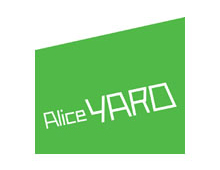"It is an extensive shore...."
Ah, that old, knotty, unknottable question: what does "Caribbean" mean? Over at Global Voices, Karel McIntosh asks three bloggers--Jamaicans Geoffrey Philp and Francis Wade, and the pseudonymous Guyana Media Critic--for some possible answers. Editing a magazine called The Caribbean Review of Books means, of course, that in all sorts of ways, theoretical and practical, I'm picking away at the question all the time. Which places are Caribbean and which are not? "You could even extend the definition to places in North America such as the recently colonized Miami and the older cities in Louisiana and the Carolinas or Plantation America," Philp suggests. Which immediately brings to mind the famous opening paragraph of Lloyd Best's seminal essay "Independent Thought and Caribbean Freedom":
When we think of the Caribbean we have in mind a canvas larger than that usually found in the gallery of the colonial mind. Certainly it includes the Antilles--Greater and Lesser--and the Guyanas. These together form the heartland of the system which it is our expressed purpose to change. But many times the Caribbean also includes the littoral that surrounds our sea. Admittedly, it is an extensive shore. And the contours which may be taken to mark it off are still--to an uncomfortable degree--a matter of personal taste. Yet our choice of boundaries is not, for that fact, baseless. For what we are trying to encompass within our scheme is the cultural, social, political and economic foundations of the "sugar plantation" variant of the colonial mind. Hence we sometimes include Carolina and Caracas with Kingston and Chacachacare, Corentyne and Camaguey; Recife with Paramaribo, Port of Spain and Pointe-a-Pitre; and British Honduras with Blanchisseuse and Barranquitas.
Which in turn prompts me to wonder: now that Lloyd Best is no longer with us, how soon will we get the volumes of his collected writings on politics, art, literature, and society that are so desperately missing from our bookshelves? Lloyd always resisted collecting his work into books, preferring to publish in newspapers and journals and magazines that were more accessible to the ordinary reader, and preferring the gradual evolution of ideas that long-term serial publication makes possible. But surely the time has now come to begin the massive task of collection into bound volumes that will ensure the permanent accessibility of his polymathic intelligence?
.
Dear readers: For our sixth anniversary in May 2010, The Caribbean Review of Books has launched a new website at www.caribbeanreviewofbooks.com. Antilles has now moved to www.caribbeanreviewofbooks.com/antilles — please update your bookmarks and RSS feed. If you link to Antilles from your own blog or website, please update that too!
Dear readers: For our sixth anniversary in May 2010, The Caribbean Review of Books has launched a new website at www.caribbeanreviewofbooks.com. Antilles has now moved to www.caribbeanreviewofbooks.com/antilles — please update your bookmarks and RSS feed. If you link to Antilles from your own blog or website, please update that too!
Thursday, 31 May 2007
Subscribe to:
Post Comments (Atom)








2 comments:
I think South Carolina may well be considered Caribbean. :)
You may well be able to make a case for that, Paul. There are definite affinities/similarities between the coastal Gullah culture and that of several Caribbean islands, including patterns of speech and usage.
Post a Comment